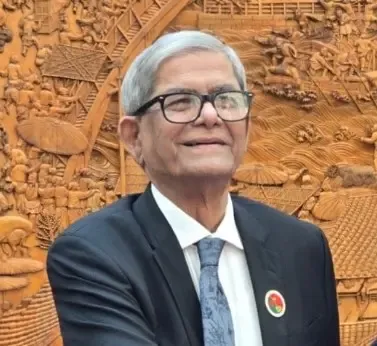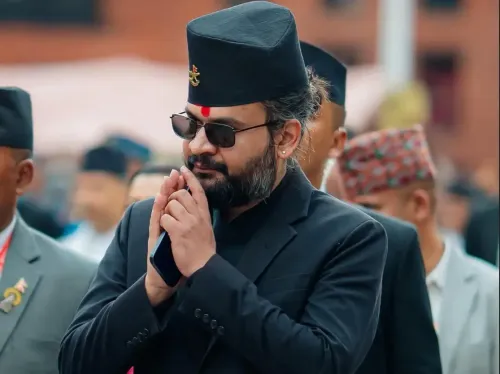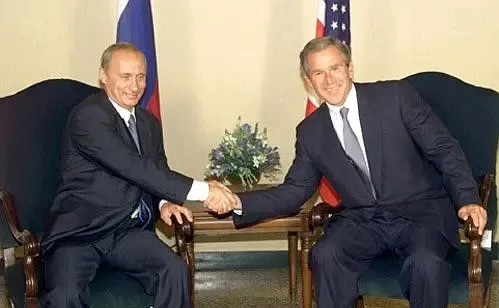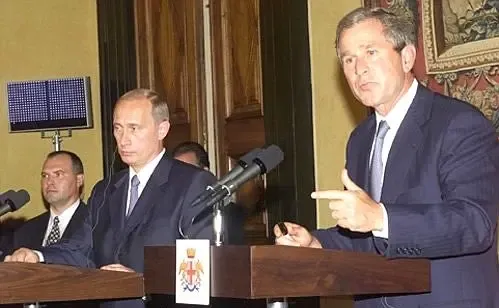Why is the BNP Criticizing Islamist Parties' Street Protests?

Synopsis
Key Takeaways
- BNP opposes the PR electoral system.
- Islamist parties demand elections under the July Charter.
- Protests are seen as creating unnecessary pressure.
- Political tensions are escalating ahead of the elections.
- Ongoing discussions are crucial for Bangladesh's democratic future.
Dhaka, Sep 19 (NationPress) The Bangladesh Nationalist Party (BNP) has voiced strong opposition to the joint street activities initiated by various radical Islamist factions, including Jamaat-e-Islami. The party contends that advocating for demands like the proportional representation (PR) electoral system is not beneficial for democracy.
During a press briefing at Hazrat Shahjalal International Airport in Dhaka upon his return from Singapore on Thursday evening, BNP Secretary General Mirza Fakhrul Islam Alamgir expressed his concerns.
“I believe such initiatives are unwarranted. The discussions with the Consensus Commission are still ongoing. Initiating these programmes while talks are in progress only serves to exert unnecessary pressure,” quoted Fakhrul by Bangladeshi media outlet UNB.
“In my opinion, this movement by Islamic parties is neither conducive to democracy nor aids in making informed decisions,” he added.
Reiterating the BNP’s stance on the PR system, the party leader stated that they do not endorse such a voting mechanism.
“We believe that there is no need for PR in Bangladesh. Talks are underway regarding the July Charter. We have reached consensus on various issues… and those concerns can be addressed in due time,” Fakhrul continued.
As the political landscape intensifies ahead of the upcoming elections, seven Islamic political parties unveiled a three-day agenda starting Thursday, advocating for a unified set of demands, including conducting the national elections in February under the July Charter and implementing the PR system.
The coalition includes Jamaat-e-Islami, Islami Andolan Bangladesh, Bangladesh Khelafat Majlis, Khelafat Majlis, Nizam-e-Islam Party, Bangladesh Khelafat Andolon, and Jatiya Ganatantrik Party (JAGPA).
The leaders of these Islamist factions have cautioned that Bangladesh could encounter a “major disaster” if the charter does not receive a legal foundation prior to the next elections, as they organized protest rallies on Thursday in Dhaka, according to local media.
“We have insisted that the forthcoming election must be conducted under the legal framework of the July Charter. However, one party is hindering progress by claiming that such constitutional reforms are unnecessary. This contradicts the aspirations of the populace,” quoted Jamaat Secretary General Mia Golam Porwar during a rally at the south gate of Baitul Mukarram National Mosque in Dhaka.
At the same time, during a rally at the north gate of the mosque, Bangladesh Khelafat Majlis Secretary General Jalal Uddin Ahmed warned, “If the July Charter is not enacted, a national catastrophe will be unavoidable. No electoral process without it will yield positive outcomes for the country or its citizens.”
Conversely, Islami Andolan Bangladesh heavily criticized the BNP for opposing the PR system despite their claims of possessing public support.
The factions that previously allied with Yunus to oust the democratically elected Awami League government, led by Sheikh Hasina, are now in conflict over reform proposals.










